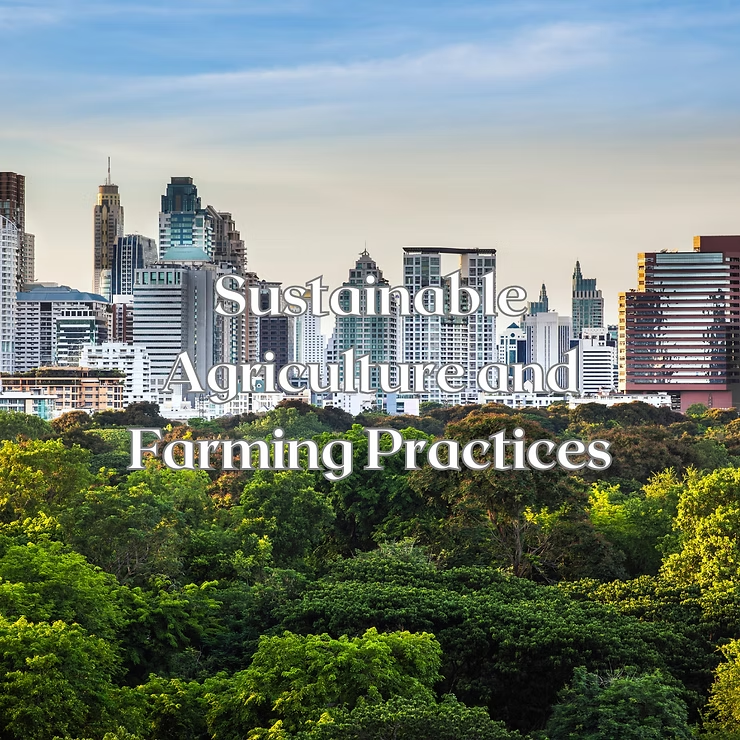The Importance of Sustainable Agriculture
Protecting the Environment
Sustainable agriculture minimizes environmental impact by reducing chemical fertilizers and pesticides, promoting composting, crop rotation, and integrated pest management. Water conservation techniques, like drip irrigation, preserve water resources and reduce energy use, ensuring a healthier ecosystem for future generations.
Preserving Biodiversity
Biodiversity strengthens ecosystems by supporting pollination, nutrient cycling, and natural pest control. Sustainable farms maintain diverse plant and animal species, creating a resilient and balanced agricultural system.
Conserving Water Resources
Techniques like drip irrigation, rainwater harvesting, crop rotation, and cover cropping help farmers use water efficiently, retain soil moisture, and reduce water waste.
Principles of Sustainable Farming
Regenerative Agriculture
Regenerative agriculture restores soil health through cover cropping, composting, and crop rotation. It improves resilience against climate change and reduces reliance on synthetic inputs.
Crop Rotation
Rotating crops prevents pest and disease buildup, replenishes soil nutrients, and reduces chemical use, promoting a healthier and more productive soil ecosystem.
Integrated Pest Management (IPM)
IPM combines monitoring, biological control, crop rotation, and habitat management to minimize pesticide use while preserving beneficial insects and maintaining ecosystem balance.
Benefits of Sustainable Farming
- Improved Soil Health: Techniques like composting and reduced tillage enhance fertility, structure, and water retention.
- Reduced Chemical Usage: Crop rotation, cover cropping, and IPM decrease reliance on harmful chemicals.
- Enhanced Nutritional Value: Healthier soils and natural fertilizers produce nutrient-rich, flavorful crops.
Challenges in Implementation
- Transitioning from Conventional Methods: Requires knowledge, experimentation, and gradual adoption of sustainable practices.
- Financial Constraints: Initial investments can be high; subsidies, incentives, and collaborative models help offset costs.
- Knowledge and Education Gaps: Training, workshops, and peer learning are crucial for effective practice adoption.
Innovations in Sustainable Agriculture
- Precision Farming: Uses sensors and data to optimize irrigation, fertilization, and pest control.
- Vertical Farming: Grows crops in stacked layers, saving space and water while reducing pesticide use.
- Agroforestry: Combines trees and crops, enhancing biodiversity, soil health, and climate resilience.
Community Engagement
Farmers markets, CSA programs, urban farming, and educational workshops connect communities with local food systems, promoting sustainability and awareness.
Policy and Government Support
Subsidies, regulatory frameworks, and research funding enable farmers to adopt sustainable practices, innovate, and improve long-term agricultural resilience.
Conclusion
Sustainable agriculture protects the environment, preserves biodiversity, conserves water, and produces nutritious food. Collaboration among farmers, communities, and governments is essential for a sustainable future.

